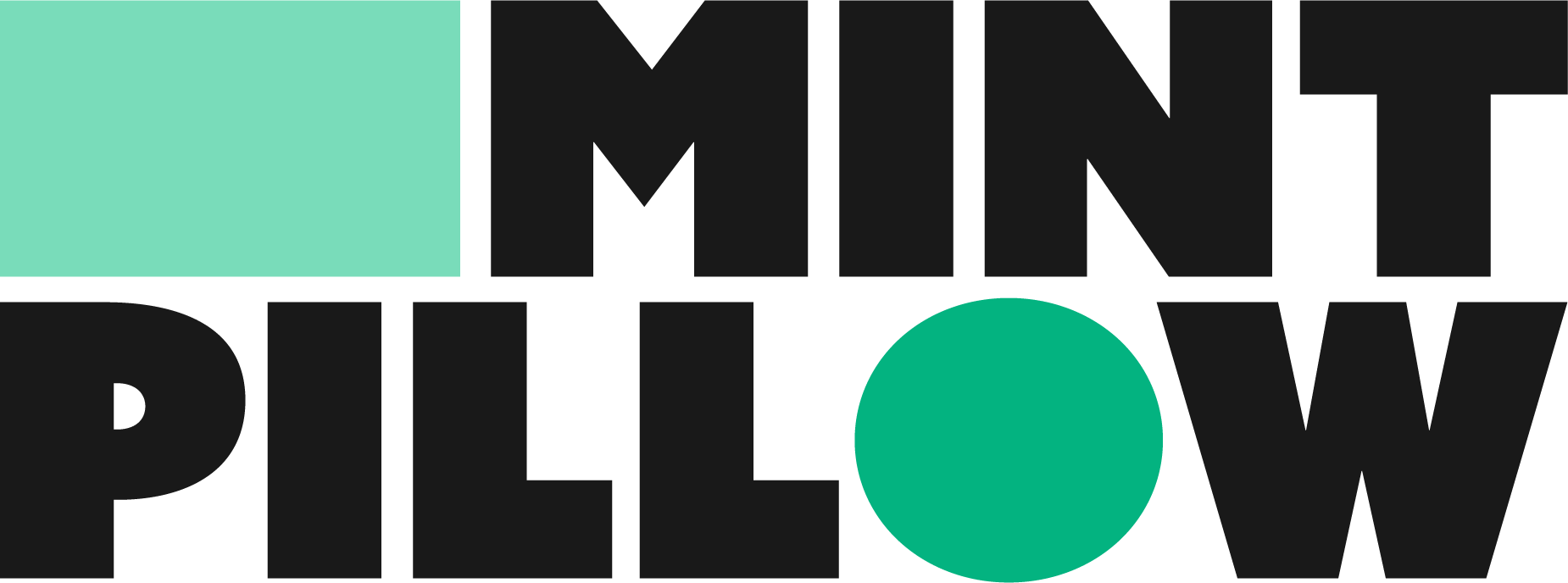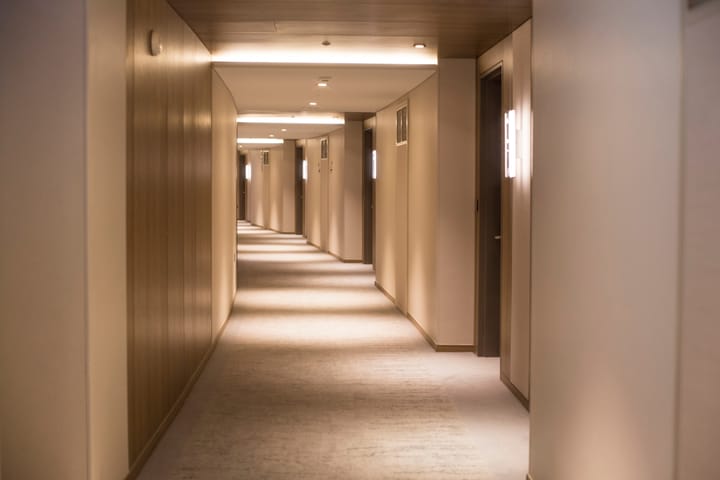Hotel love languages
Plus: The rise of vegan hospitality

Staying ahead means embracing innovation and inclusivity. We're exploring a host of strategies to elevate your business, from examining how to build the ideal tech stack to welcoming vegan and plant-forward guests to your F&B programming (good for the planet and great for your bottom line). But first: Have you heard of secret hotels-within-hotels?
As always, thanks for reading, and feel free to hit reply to this email if you'd like to connect with us.

Having turned Aruba into one of the most vegan-friendly islands in the Caribbean, Meredith Marin can tell you a thing or two about entrepreneurship and plant-based eating. As the co-founder and executive director of Vegan Hospitality, a U.S.-based nonprofit with global operations, she leads the company’s efforts to streamline hospitality F&B operations to cater to the growing demand for sustainable, plant-forward culinary programming. - Jennifer Glatt
What are the key expectations of vegan or plant-based guests when they choose to stay at a hotel?
Vegan guests expect to be treated the same as any other guest, and that is both the problem and the solution. Vegan guests want on-menu options (More than one! For every meal of the day! And dessert, too!). They want to experience the enjoyment of eating chocolate cake, not watching their friends indulge while they lick their third lemon sorbet of the week. They want to feel understood and welcomed by well-trained staff members. And they want the option of laying their head down at night on a pillow that didn't require the plucking off of anyone's feathers. Most hotels already have these options available, they just haven't streamlined them yet.
What is driving the shift toward vegan and plant-based options in hospitality?
Many factors are driving this shift, including the climate emergency and its impact on tourism, health and wellness trends as well as an increased awareness about the realities of animal agriculture. Overall, the shift in hospitality practices in response to these driving factors is coming from the impact these driving factors are having on revenue and compliance. Sustainability targets are increasingly shifting from goals to mandates, allergen protocols are shifting from niche customer service to streamlined necessity, and customers now expect their eggs to be cage-free. Hotels understand that there is no beach tourism without thriving coral reefs, and there is no F&B service when the younger generation of plant-forward diners can't find anything on the menu.
What kind of staff training or education is necessary to ensure seamless service for vegan guests?
We offer a streamlined staff training program through our hotel certification program for hotels that are already meeting our minimum standards for vegan-friendly guest services. This training is a 30-minute recording that is relevant to all staff, from back-of-house to marketing teams. For hotels that do not yet meet the standards, more education and support may be necessary in the form of menu audits and evaluations, in-person staff training at the leadership level and support with the creation of a vegan guest strategy or plant-forward pledge.
Answers have been edited for brevity and clarity.

A world of possibilities. Winter doldrums got you down? Here are 25 new hotel openings from New York to Japan sure to raise your spirit in the new year.
Slow-growing. U.S. hotels report slowest ADR, RevPAR growth in four years.
Sustainability isn’t a standalone feature. Sage Hospitality Group’s Jan Lucas talks luxury branding, collective programming and stewarding resources well while elevating the guest experience.
Travel and hospitality data at your fingertips. If you’ve got a growing list of trend reports to read in your “spare time,” this comprehensive guide puts them all in one place and makes it easy to dig into the data that matters most to you. (Bookmark this tab, and don’t miss #7.)
A roadmap to revelation. Hospitality entrepreneur Steve Turk, founder of Turk Hospitality Ventures and The Hospitality Mentor, shares lessons he’s learned and insights from fellow hospitality professionals in his self-published book, Hospitality Unlocked: Advice, Strategies, and Insider Secrets from 75 of the World's Top Hospitality Leaders.

She (co)works hard for the money
Making your hotel inviting for business can boost your bottom line—no day passes or memberships required. Gone are the days of dark, uninspiring meeting spaces with spotty Wi-Fi and uncomfortable chairs.
Why it matters: Hotel co-working spaces can be a significant revenue stream. Flexible common areas make your property ideal for both individual work and group sessions, and offering your hotel as an alternative to a coffee shop can attract locals, maximize your F&B income and provide an opportunity to upsell additional spaces and services. (Hotel Nuggets)

Is the PMS still the epicenter of the hotel tech ecosystem?
Guest-facing, back-office, guest experience, labor management, accounting, distribution—the list of tech tools for hotels is enormous and steadily growing. How do you build the perfect technology ecosystem for your hotel? Ira Vouk, MBA, author of the self-published books Hotel Tech 101: How Everything Works Together (…And Does It?) and Hospitality 2.0: Digital Revolution in the Hotel Industry, offers essential tech stack tips and tricks to help you make sense of the "digital chaos."
Why it matters: “There is no one, specific, ideal tech stack,” Vouk says. However, a tech stack that is seamlessly integrated into existing workflows of the business “without the business having to bend over to adapt to how the vendor wants them to work” is the goal. On average, she says that hotels have 19 different elements to configure, and communication among them is essential. (Mews Coffee Corner)

Use comp sets for profit intelligence
“It is nice to have valid competition; it pushes you to do better," Gianni Versace once said. Studying your competitors helps pinpoint areas where your hotel excels or lags behind, provides clarity on pricing, cost management and resource allocation and uncovers opportunities to optimize revenue and reduce expenses.
Why it matters: Operational benchmarking can reveal efficiency gains, and knowing your competition makes you a stronger player in the market. However, even if you’re doing well, don’t rest on your laurels. “Market conditions, renovations and rebranding efforts continuously reshape the competitive landscape,” notes HotStats. “Regular reassessment ensures relevance and accuracy.” (Hospitality Net)

What’s your hotel love language?
When it comes to guest expectations, meaningful interactions and personalized experiences are the stars of the show. Blake Morgan, host of The Modern Customer Podcast, talks with Bashar Wali, founder and CEO of This Assembly and Practice Hospitality, about building customer-focused cultures, fostering employee engagement and blending emotional intelligence with operational excellence to deliver exceptional guest experiences.
Why it matters: A stay’s success is measured by how the guest feels. “Focus on the business that you are in. The business you are in is the feelings business,” Wali asserts. Hiring the right people with the right attitude and training them on the things that matter will make your guests feel the love. Wali doubles down on this declaration in his TED Talk, “A Hotel is Just a Building.” (The Modern Customer Podcast)
💯 Enjoying Mint Pillow? Share it with a friend.
👋 Have a story idea or want to say hello? Email us at newsletter@mintpillow.co




